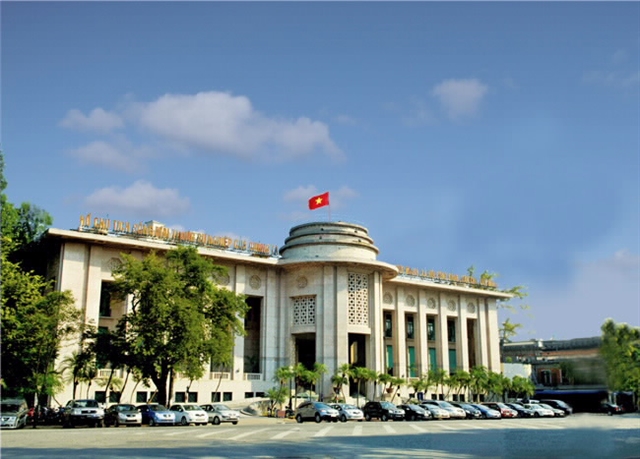 Economy
Economy

The price of fruit in the Cửu Long (Mekong) Delta has risen recently as the impact of drought and salination has caused fruit output to decline while demand has increased.
HCM CITY – The price of fruit in the Cửu Long (Mekong) Delta has risen recently as the impact of drought and salination has caused fruit output to decline while demand has increased.
Nguyễn Văn Thực, deputy chairman of the Hoà Lộc Mango Co-operative in Tiền Giang Province’s Cái Bè District, said his co-operative was buying Hoà Lộc mango at a price of VNĐ50,000 – 60,000 (US$2.2 – 2.7) a kilo, about VNĐ10,000 higher than the same period last year.
He said they did not have enough mangoes to export to Japan.
Similarly, the price of citrus fruits such as oranges, mandarins and grapefruit has increased significantly because of high demand and lower output.
Phạm Văn Lành in Lai Vung District in Đồng Tháp Province said at the end of last month his orchard had two tonnes of off-season sweet mandarins and a trader offered to buy them at a price of VNĐ28,000 a kilo.
“The price was attractive, and I agreed to sell my sweet mandarins,” he said.
However, the price of sweet mandarins rose to VNĐ30,000 a kilo and then to VNĐ36,000 a kilo a few days later, he said.
Traders now buy sweet mandarins at VNĐ36,000-40,000 a kilo, according to farmers.
Lâm Văn Khèo, who also lives in Lai Vung District, said: “Farmers who grow sweet mandarins will have high profits at the current price. However, it is the off season of sweet mandarins so the output is down. The number of households earning high profits from the high prices is not large.”
Đặng Văn Nám, director of the Kế Thành Năm Roi Grapefruit in Sóc Trăng Province’s Kế Sách District, attributed the higher price of citrus fruits to the impact of drought and salination, causing a decline in yields.
It is the off season for citrus fruits, so the yield has not been large, while the current demand for domestic consumption and exports is high, he said.
Many grapefruit exports to Asia and Europe have halted because of the supply shortage, according to fruit enterprises in the delta.
The price of citrus fruits is expected to remain high in the coming months, they said.
Ongoing saltwater intrusion from rivers has affected fruit orchards in the delta’s coastal areas, causing many fruit trees to have their flowers and young fruits falling.
Đỗ Văn Tài, director of the Tân Thành Fruit Co-operative in Cầu Kè District’s An Phú Tân Commune in Trà Vinh Province, said that saltwater intrusion had caused fruit to fall on mangosteen trees cultivated on hundreds of hectares on Qui Islet.
As of early this month, about 80 per cent of 1,300ha of fruit orchards in An Phú Tân Commune have been affected by salination, he said.
“Besides the loss of fruits, farmers worry that their fruit trees could die in the coming time,” he said.
Ongoing drought and salination have been threatening more than 6,000 ha of green peel and pink flesh grapefruit trees in Bến Tre.
Many farmers who grow green-peel and pink-flesh grapefruits have decided to pick young grapefruit and use leaves or other materials to cover the roots of grapefruit trees in order to save them from drought and salination.
In Bến Tre Province’s Chợ Lách District, one of the delta’s largest fruit cultivation areas, many fruit orchards cannot bear fruit because of salination.
Bùi Thanh Liêm, head of the Chợ Lách District Agriculture and Rural Development Bureau, said this was the first time the district’s fruit orchards had been severely affected by salination.
The bureau has set up three places to measure the salt content in water to help farmers who grow fruits and flowers, Liêm said.
Every day, about 1,000 farmers take water samples to the sites to test the salt content, he said.
Officials at the three sites also offer advice on how to protect fruit orchards, including not using water with over 0.2 per cent salt content to irrigate fruit trees, he said.
Tiền Giang Province authorities have also implemented several measures, including strictly monitoring the salt content of water and informing farmers to pump water into their ponds when there is fresh water, to protect the province’s more than 60,000 ha of fruits.
If fruit orchards are destroyed, it will take many years to recover them, according to Nguyễn Thiện Pháp, head of the Tiền Giang Province Irrigation Sub-department. –VNS




